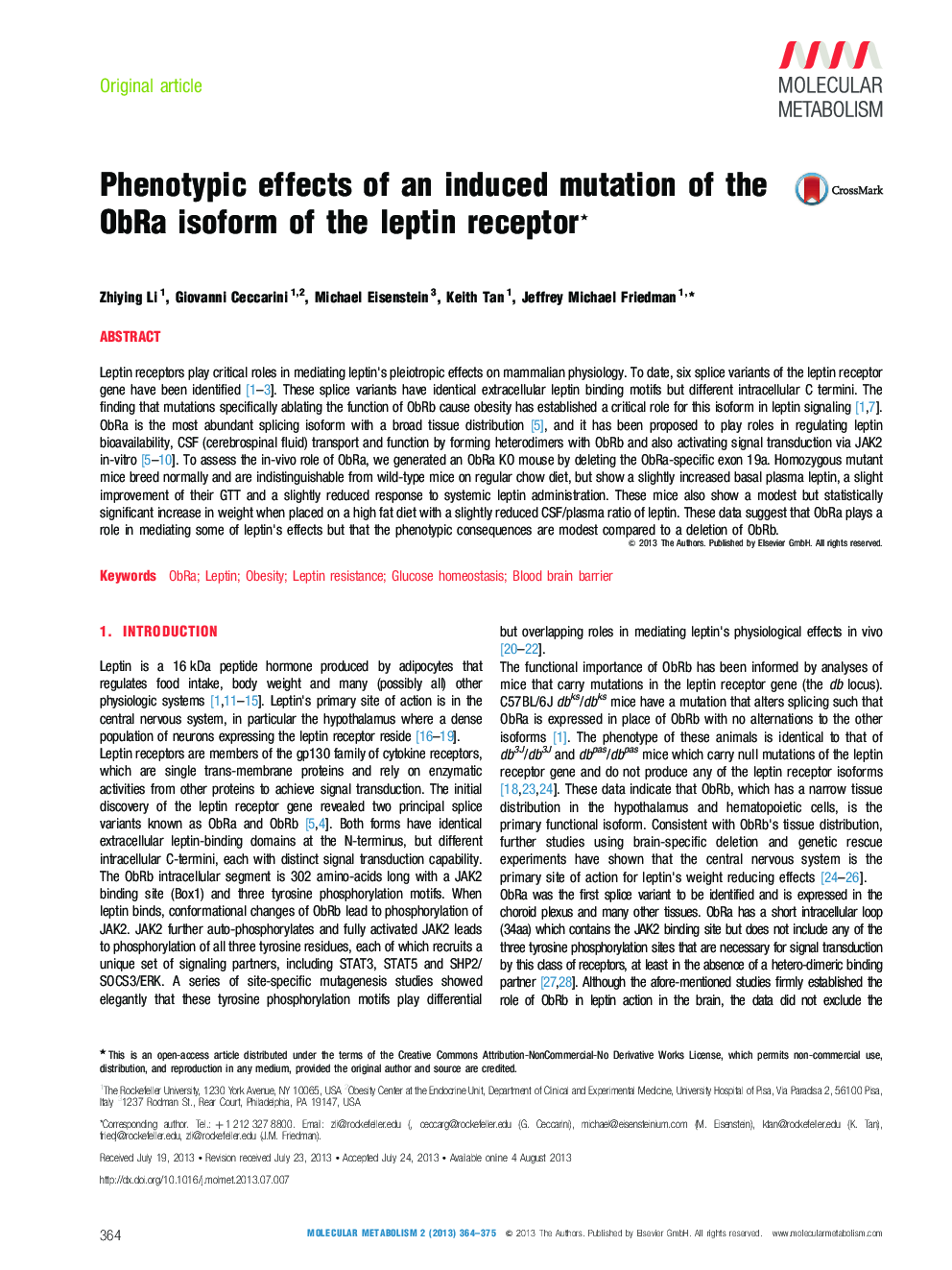| کد مقاله | کد نشریه | سال انتشار | مقاله انگلیسی | نسخه تمام متن |
|---|---|---|---|---|
| 3001643 | 1180656 | 2013 | 12 صفحه PDF | دانلود رایگان |

Leptin receptors play critical roles in mediating leptin's pleiotropic effects on mammalian physiology. To date, six splice variants of the leptin receptor gene have been identified [1], [2] and [3]. These splice variants have identical extracellular leptin binding motifs but different intracellular C termini. The finding that mutations specifically ablating the function of ObRb cause obesity has established a critical role for this isoform in leptin signaling [1] and [7]. ObRa is the most abundant splicing isoform with a broad tissue distribution [5], and it has been proposed to play roles in regulating leptin bioavailability, CSF (cerebrospinal fluid) transport and function by forming heterodimers with ObRb and also activating signal transduction via JAK2 in-vitro [5], [6], [7], [8], [9] and [10]. To assess the in-vivo role of ObRa, we generated an ObRa KO mouse by deleting the ObRa-specific exon 19a. Homozygous mutant mice breed normally and are indistinguishable from wild-type mice on regular chow diet, but show a slightly increased basal plasma leptin, a slight improvement of their GTT and a slightly reduced response to systemic leptin administration. These mice also show a modest but statistically significant increase in weight when placed on a high fat diet with a slightly reduced CSF/plasma ratio of leptin. These data suggest that ObRa plays a role in mediating some of leptin's effects but that the phenotypic consequences are modest compared to a deletion of ObRb.
Journal: Molecular Metabolism - Volume 2, Issue 4, November 2013, Pages 364–375